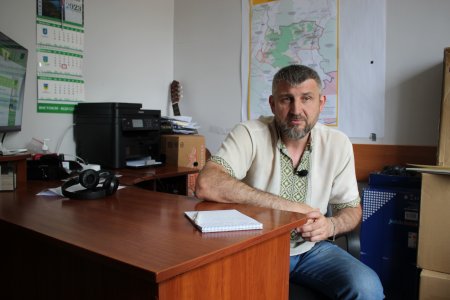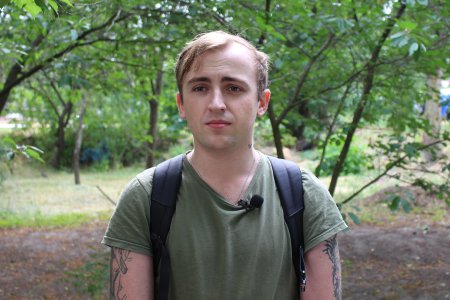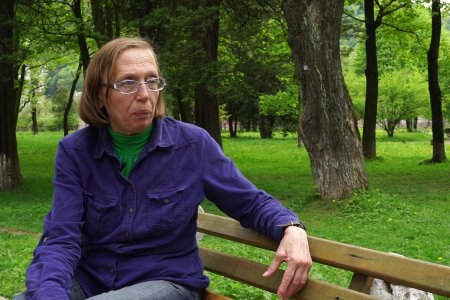What’s up with our house? We made a new foundation, insulated it, covered everything with thermoplastic tiles, painted it, threw out the stove, and made some repairs. And now you can’t enter the house. A commission wrote that it was to be demolished because it was unsuitable for habitation. Everything falls apart. Here was the bedroom. Here was the kitchen. And this was a large room. Somewhere here was a TV, there were icons, everything was here: the table, the TV, the closet — just like that... The bastards caused big trouble.
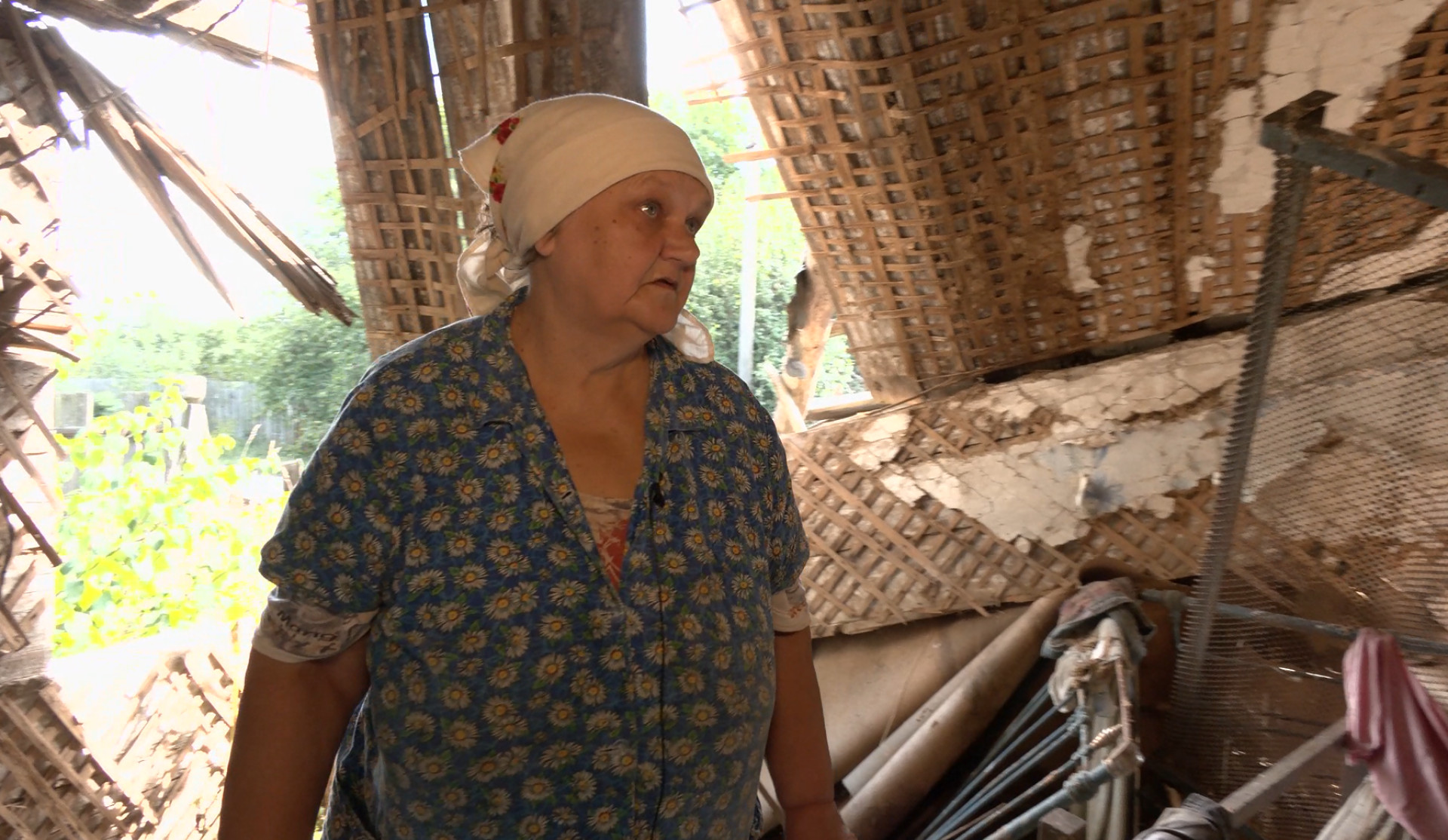
About shelling and killings of people
Many killed! My cousin’s sister’s boyfriend was killed in her house. He was so calm, such a golden boy, and wanted to get married... He died right in bed, in the house. My godmother lives on the edge of my village, and the children came to her with their children; they thought they would be saved in the village. But it turned out that the people who remained in Kyiv survived. When the bombing started, they ran out of the house and wanted to hide in the cellar. As soon as they ran out, the son and grandson were killed. Another grandson’s arm was torn off. On the 18th, we found the bodies lying in the village’s center. Many died in the village.
We have never had such explosions on 24 February as in Hostomel. And on 6 March, our village was already destroyed. That day, six houses on our street were wrecked at once. The plane flew and dropped bombs. And on one street, this plane hit six houses at once. And then, on 18 March, our tanks came from here, and Russian tanks from Lypivka. Russians were behind the headquarters, and ours were at the end of our street. That’s why we got it. They wanted to kill our tankers; some were killed, and corpses lay in the courtyards. Russian tanks were coming from the end of the village, and ours were coming from here. There, too, many houses burned down.
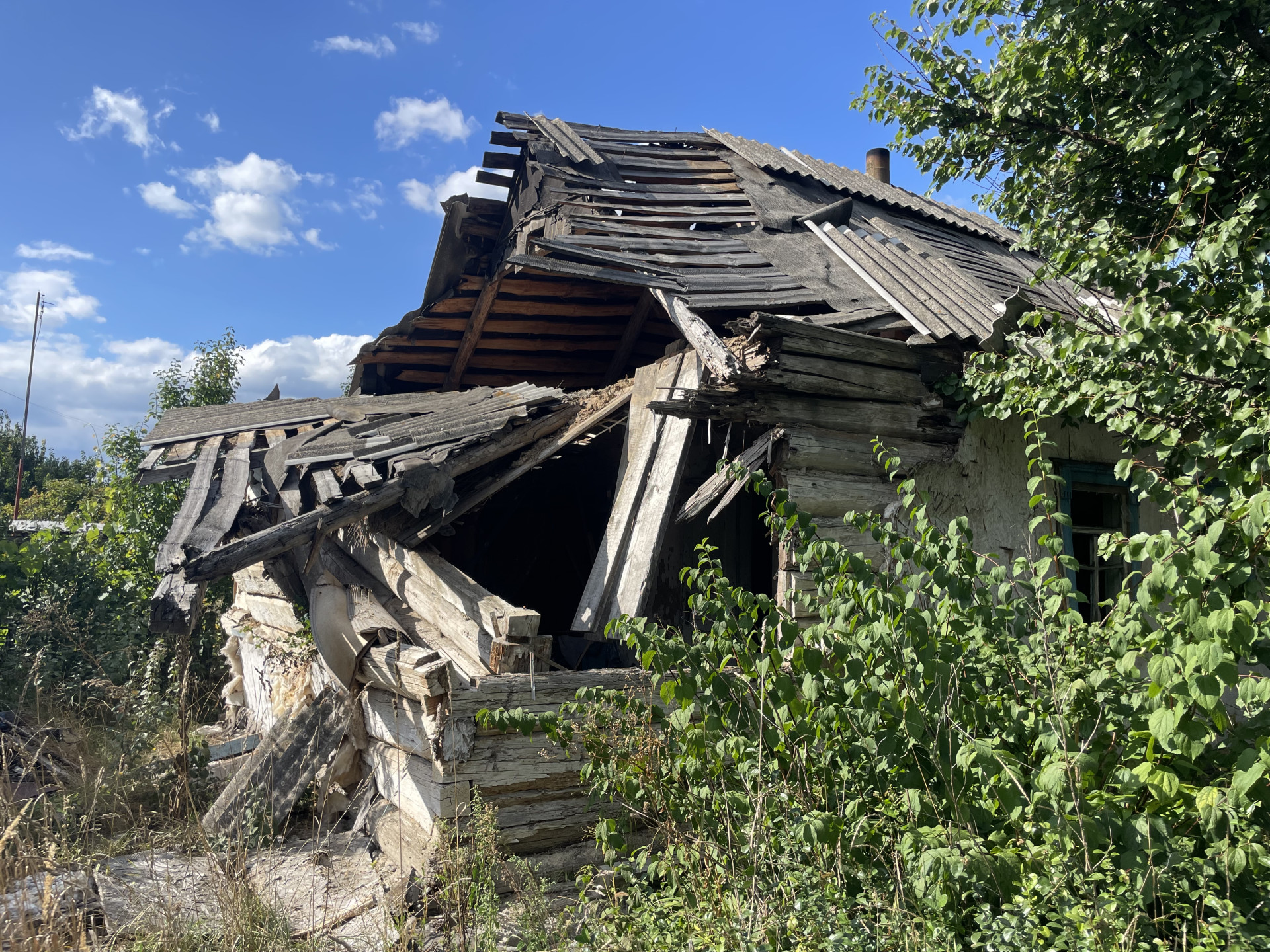
It hit the house in the corner. One guy originally from Havronschyna came to see a girl — not far from us here on the street. He came to us and asked for a smoke. Vasya, my son’s godfather, brought him a cigarette, and right here in the yard, this guy died. Three people in the house were injured. And then Lypivka and Havronschyna were under the Russians. Relatives from Havronschyna could not take him away. So that he would not lie in the yard, we brought him into the house, and Vasya and I went to live with my daughter. His body stayed in the house for a month. Then, they allowed him to be buried behind a hazel tree. And not only him! Everyone buried the dead in the gardens. Only later, they took the bodies to the morgues.
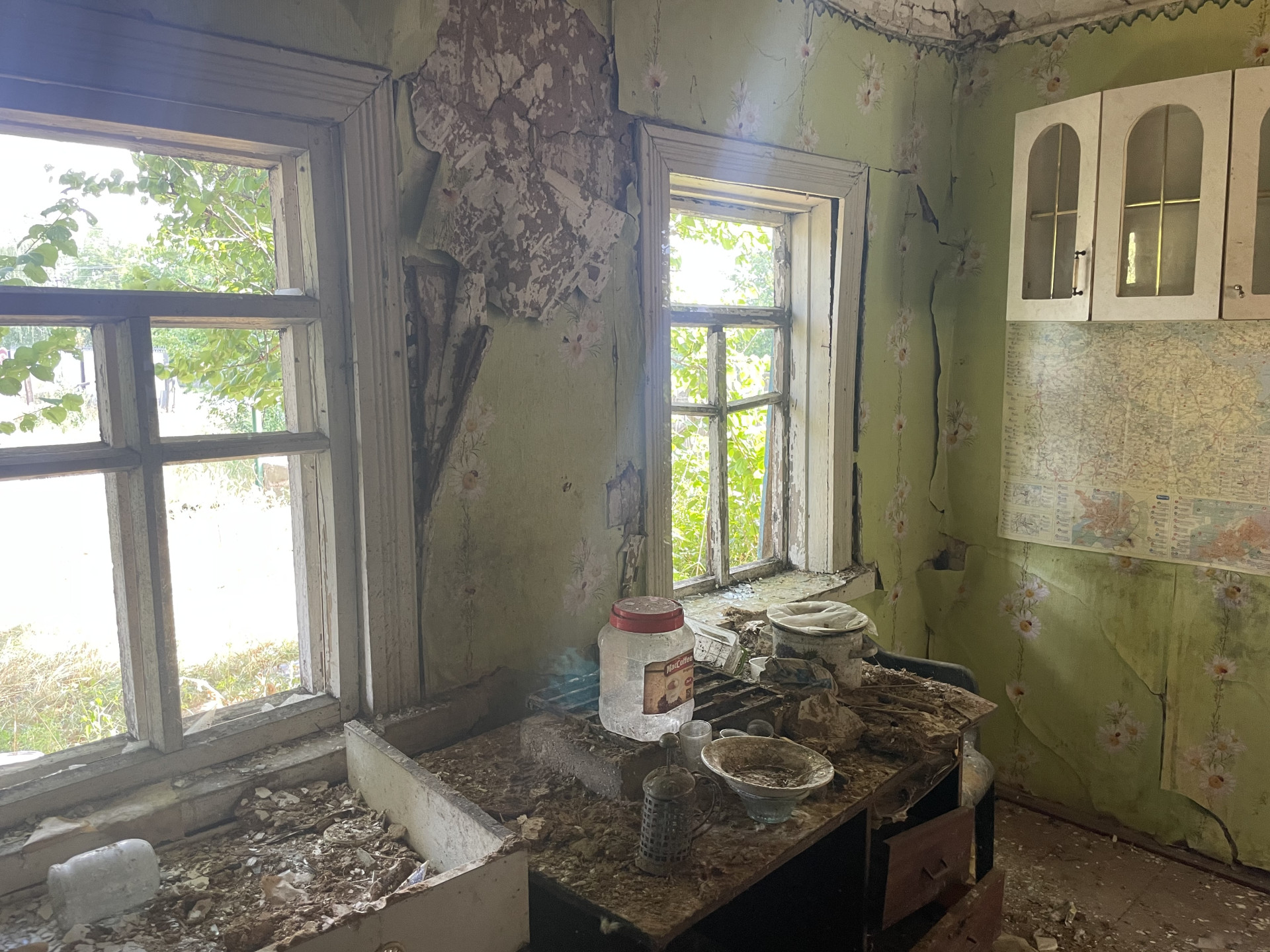
The Russians were at the other end of the village, but they only came for one day and then moved towards Lypivka. They danced, sang, and drank in a bar in Lypivka. Shops and houses were robbed. Many Russians lived in Andriivka. They entered Korolivka, and one man approached the tank and said: “What are you doing? We didn’t invite you! Why did you come to us? And there, one soldier wanted to shoot him, but the sergeant said not to touch him.
We all hate them so much! I want the war to go over to their side so they can see this and have Bucha, not us. So they know what war is and what it is like to have people’s houses burned down from airplanes.
